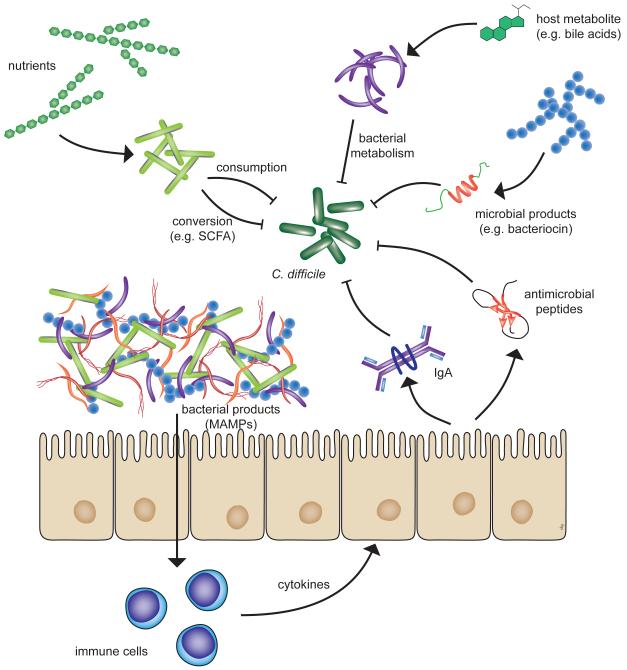Figure 1.
Potential mechanisms by which the indigenous microbiota can mediate colonization resistance against C. difficile. Specific members of the microbiome can either directly, or indirectly interfere with the proliferation of C. difficile within the gut. Direct inhibition can occur via competition for nutrients, the conversion of nutrients or host metabolites to compounds that are inhibitory to C. difficile or by the production of primary microbial products that inhibit C. difficile. Indirect control of C. difficile can occur via interactions between the indigenous microbiota and the host that results in the expression of host products that control C. difficile colonization and proliferation. Detection of microbial-associated molecular patterns (MAMPs) can trigger the host immune signaling cascades leading to the production of innate (e.g. antimicrobial peptides) or adaptive (e.g. IgA) immune effectors. Abbreviations: SCFA, short-chain fatty acids.

